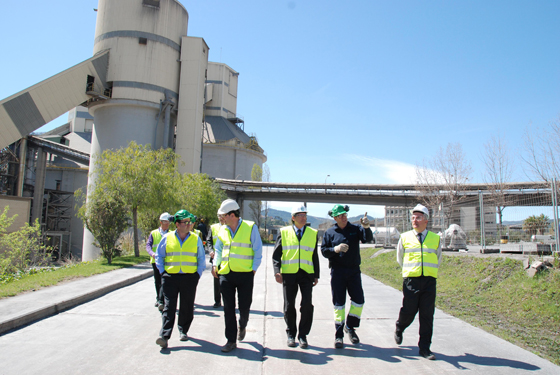The Board of Directors of Ciment Català has deployed a program of visits and meetings with the members of the different political parties represented in the Committee on the Environment and Sustainability of the Parliament of Catalonia. This program, initiated last November, is aimed at explaining in the parliamentary headquarters the situation of the sector and the activities it is developing to reduce the environmental impacts and the natural environment of its industrial activity. Among other actions, parliamentarians are informed of investments in facilities (from filters to technology), of energy substitution for the saving of fossil fuels, of the material recovery of waste or of quarry restoration projects. All these actions help to further improve the environmental behavior of the production plants and, in many cases, they make a contribution to society as a whole, as in the problematic waste management.
The program of work sessions in the Parliament is part of the information transparency policy of the sector. Precisely, at each meeting, the political partners are offered the option of visiting a cement factory, so that they can verify on site the level of execution of the before mentioned actions.
Meetings with parliamentarians allow us to also address different issues that affect the industry. Among the most current ones, we can mention the situation of the market in Catalonia, which is heavily burdened by the lack of public investment in new infrastructures and maintenance projects that already exist. It also transmits the objections that the sector puts to some aspects of the preliminary draft of the Climate Change Law that is being processed by the Parliament of Catalonia. Some of the provisions foreseen in the new regulatory text may limit the competitiveness of Catalan factories, at a delicate moment for the domestic market situation, to the point of threatening its continuity. Paradoxically, an eventual relocation of the Catalan cement industry could cause the perverse effect of greater contamination, since it would force the import of cement from abroad, with the consequent environmental impact derived from transport.

